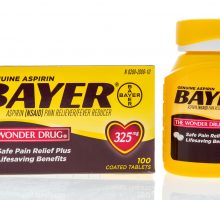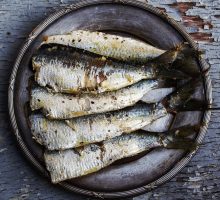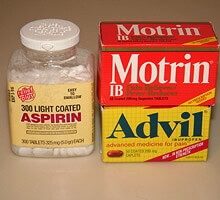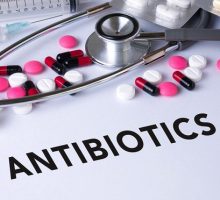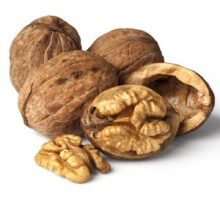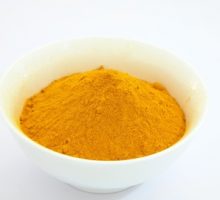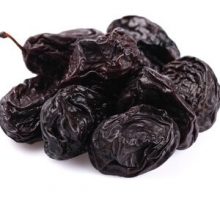Colorectal Cancer
Show 1420: The Cooking Oil Controversy Spotlight…
This week, we dig into the cooking oil controversy. For decades, we’ve heard that we should be using vegetable oils rather than butter, lard or other fats (possibly even olive oil). Oils from corn, …
Aspirin and Cancer: The Overlooked Protection Hi…
When you think of aspirin you probably think of 1) a pain reliever, 2) a fever reducer and 3) heart attack protection for high-risk patients. But for more than three decades, we have been talking abou…
Are Some Vegetable Oils Worse than Saturated Fat…
For decades, the number one dietary evil in America has been saturated fat (sat fat). Ask most doctors and nutrition experts the one thing you should remove from your diet over everything else, and yo…
Did 15 Years Taking Aspirin Prevent Colorectal C…
Sometimes an anecdote or personal experience has a strong basis in science. You will shortly read a story from a reader about his family history with colon cancer. He suspects that his recent good new…
How Good Is Aspirin Against Cancer? You Might Be…
In 1993 we published a book with Tom Ferguson, MD, called The Aspirin Handbook (Bantam Books). In it we pointed out that there was an impressive amount of research supporting the beneficial effects of…
What Are the Alternatives to Colonoscopy?
Colorectal cancer is the third most common type of cancer and the second leading cause of cancer death among American adults. If it is detected early, before it spreads, colorectal cancer can be treat…
Will Colonoscopy Change Your Gut Flora?
Colonoscopy, in which the gastroenterologist uses a scope to examine the colon for signs of polyps or other growths, can save lives. (Learn more here.) The value of this procedure has been established…
Show 1441: How Exercise Can Help Cancer Patients…
Physical activity, aka “exercise,” is a cornerstone of good health, just like adequate sleep and a balanced diet. No one questions the benefits for people who are already healthy. But doctors may …
Heart Attacks = Cardiac Rehab! Why Doesn’t…
Have you suffered a heart attack? Know someone who has? According to the CDC, each year over 800,000 people have what doctors call a myocardial infarction and the rest of us call a heart attack. About…
Does Regular Vigorous Exercise Cut the Chance of…
Can you run away from cancer? It sounds like a silly question, but new research suggests that regular, vigorous exercise helps protect people from cancer. In addition, metastatic spread is far less co…
Eating Ultra-Processed Food Is Bad for Your Brai…
For years, the American diet has been trending towards more and more processed foods. Such foods now make up more than half of what we eat. And we are not the only ones. Ultra-processed food has becom…
Does Vitamin D Help Prevent Colorectal Cancer?
Colorectal cancer rates declined starting in the mid 1980s. That may have been due in part because of regular screening through colonoscopy. Lately, though, that trend has reversed, especially among y…
Why You Should Exercise and Eat Right, Now
We've all been told that we should exercise and eat right. That's true even after a person has been diagnosed with colon cancer. A new study shows that staying active can increase a cancer patient's c…
Breakthrough Discovery: How Aspirin Keeps Cancer…
Cancer remains our number two killer, just behind heart disease. Last year the American Cancer Society reported that for the first time there would be more than 2 million new cases of cancer. It proje…
What’s in Your Frying Pan? Omega-6 or Omega-3 …
Americans have long been urged to embrace polyunsaturated fatty acid (PUFA) vegetable oils because they are low in saturated fats. These oils made from corn, peanuts, soybeans, safflower and sunflower…
What Is the Best Diet for Cancer Survivors?
Does it matter what you eat after you’ve been treated for cancer? Patients with a history of cancer are rarely given advice about diet. That may now change because of an epidemiological study of dat…
FIT | Can You Detect Colon Cancer Without a Colo…
Have you ever had a colonoscopy? It might not be the most pleasant screening test ever devised, but it does save lives. Colon cancer is a leading cause of cancer death, and a colonoscopy is a way to d…
Show 1395: Gut Check–How Digestive Health Infl…
This week, we talk with integrative gastroenterologist Robynne Chutkan about why our digestive health is so important. Of course, our digestion provides us with the nutrients that power our bodies, in…
Are Younger People Now at Risk for Colon Cancer?
Most of the time, studies on how frequently cancer occurs focus on specific diagnoses, such as lung cancer or colon cancer. Several years ago, scientists detected a disturbing trend in the rates of re…
Common Pain Relievers (Aspirin and NSAIDs) Vs. C…
Cancer remains one of our most challenging health concerns. Despite new immunotherapies, far too many people die each year of malignancies. And colorectal cancer remains a top killer. According to the…
How Do You Weigh the Benefits and Risks of Aspir…
Aspirin has been around for over 100 years. Moreover, it is one of the most versatile drugs in the pharmacy. This tablet relieves pain, lowers fever and reduces inflammation. In addition, it has anti-…
Do People Who Skip Meat Have a Lower Chance of C…
Colorectal cancer is common and deadly. It is the third most common malignancy and the fourth most common cause of cancer death in the world. A new study published in BMC Medicine reports that diet ca…
Are Colonoscopies A Waste of Time and $$$?
The headlines were brutal and gastroenterologists cringed. One from MEDPAGE TODAY (Oct. 9, 2022) captured the essence of a new study: "If You Invite 455 People to Colonoscopy, You'll Stop One Case of …
Do Bacon and Ham Raise Risk for Colon Cancer?
Cold cuts have a reasonably long shelf life, in large measure because of the added preservatives–salts of nitrate and nitrite. Such chemicals add flavor and the familiar pink color to ham, salami an…
Are Antibiotics and Colon Cancer Linked?
Antibiotics are, without doubt, one of the greatest breakthroughs in modern medicine. Millions, perhaps tens of millions, of lives have been saved thanks to antibiotics. Antibiotics are often perceive…
Show 1179: What Should You Do About Digestive Di…
Have you ever had horrible heartburn or a really bad bellyache? Most of us have experienced digestive distress at one time or another. When do you need to seek medical attention for your problem? What…
Can Blood Pressure Pills Cut Risk of Colon Cance…
Millions of people take blood pressure medicines called ACE inhibitors such as lisinopril. Many others use ARBs such as losartan or valsartan. Some previous studies hint that ACE inhibitors might incr…
Reducing Cancer Risk With Vitamin D and Magnesiu…
Scientists have linked low levels of vitamin D to a higher risk for cancer, especially colorectal cancer. What do they say about minerals? Is there a role for them in cancer prevention? A new study pu…
Should You Eat Yogurt for a Healthy Colon?
Your diet could influence your risk of developing colorectal cancer. Data from the long-running Health Professionals Follow-up Study and the Nurses’ Health Study included detailed information on die…
Show 1144: New Ways to Heal Your Digestive Tract
Heartburn is a common problem. Many people take powerful acid-suppressing drugs like Nexium or Prilosec every day to treat gastro-esophageal reflux disease or GERD. If untreated, chronic irritation of…
Do You Need to Take Calcium Supplements?
For decades, women and older adults were advised to take calcium supplements, ossibly with vitamin D, to help maintain bone strength. More recently, however, some scientists have raised concerns about…
Should You Worry About Calcium Side Effects Like…
Until recently, extra calcium was considered essential for good health. Millions of women popped a calcium pill or two every day. They assumed there were no calcium side effects, though some complaine…
Nuts Reduce Chance of Colon Cancer Recurrence
Eating nuts has been shown to be good for cardiovascular health. But could nuts reduce the risk of colon cancer recurring? Nuts Reduce Rate of Recurrence: Now, researchers have found that people who e…
Can What You Eat Change Your Risk of Cancer?
A new study published in JAMA Oncology reports that pro-inflammatory foods increase the risk of colorectal cancer. An anti-inflammatory diet, on the other hand, reduces the risk of cancer (Tabung et a…
Colorectal Cancer Is Killing More Young Adults
Researchers are reporting that colorectal cancer is killing an increasing number of American adults under 55. The death rate has risen noticeably since the mid 1990s. Colorectal Cancer Is Killing Whit…
Can Curcumin in Turmeric Fight Pancreatic Cancer…
Pancreatic cancer is a challenging disease. The American Cancer Society puts one-year survival rates around 20%. Five-year survival is roughly 8%. That compares to five-year survival for prostate, thy…
Nordic Diet vs. Dementia
The Mediterranean diet gets all the headlines. It is supposed to be good for your heart, your brain and just about everything else that ails you. Ask almost any health professional about the healthies…
Staying Active Can Help Prevent Chronic Health P…
Exercise remains one of the most powerful interventions for promoting health and preventing disease. An article in the BMJ reviewed 174 studies published over 25 years. The scientists evaluated the am…
Vitamin D and Calcium Supplements Failed in Canc…
Previous research suggested that high levels of vitamin D would protect people against colorectal cancer. People with high blood levels of this hormone/vitamin were more likely to survive. A big obser…
Dried Plums Against Colon Cancer
Dried plums, also known as prunes, are famous for their effects as a remedy for constipation. Now researchers working with rats have found that a diet rich in dried plums also appears to reduce the r…

